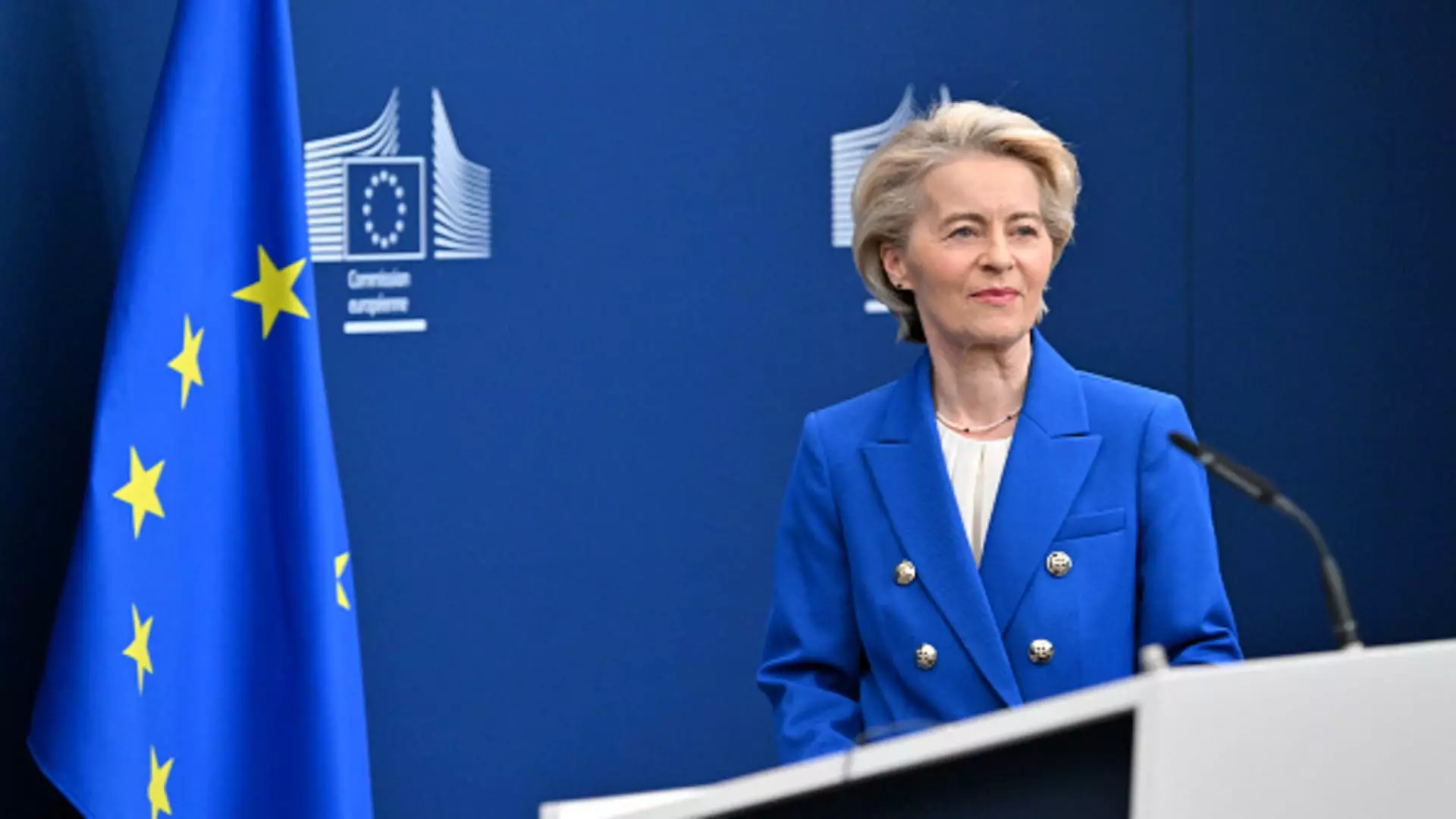The European Union is standing at a critical crossroads as it embarks on an ambitious initiative to mobilize a staggering 800 billion euros (approximately $841 billion) in defense spending. Announced by European Commission President Ursula von der Leyen, this “ReArm Europe Plan” symbolizes more than just a budgetary shift; it represents a fundamental transformation in how Europe perceives its role in global security, both in the immediate context of the escalating conflict in Ukraine and as a long-term commitment to autonomy and strength.
However, this shift is laden with complexities and potential pitfalls that could redefine the European political landscape. For many, the proposal to ramp up military investment marks an era of “rearmament,” a term that evokes memories of darker ages in global history. Is Europe truly ready to confront the ramifications of spending such colossal amounts on defense? The urgency is palpable, but the strategy warrants a deeper scrutiny.
Immediate Response vs. Long-term Strategy
Von der Leyen’s emphasis on urgent action reflects the geopolitical pressures stemming primarily from Russia’s aggression in Ukraine. Countries that historically may have shied away from military expenditure are now reassessing their strategies. However, one must question whether this approach serves as a band-aid solution rather than a long-term vision. Investing heavily in military capabilities can lead to a diversion of funds from social programs, education, and health services—all essential components for the sustainable growth that European citizens desire.
Moreover, relying on loans, such as the proposed 150 billion euros available to EU member states for military investments, casts doubt on the sustainability of this initiative. Countries already wrestling with fiscal challenges may find themselves entangled in debt that prioritizes artillery systems over educational initiatives or healthcare improvements. If European nations are to bolster their defenses effectively, balancing military expenditures with the needs of their citizenry is imperative.
The notion of militarization can have far-reaching consequences. As Europe strengthens its military capabilities, it risks provoking an arms race that could exacerbate tensions with global power players. While defense is undeniably critical, the path of escalating military expenditures could easily lead to miscalculations or misunderstandings, particularly with narratives that may emerge from aggressive posturing.
Furthermore, the opaqueness surrounding how these investments will be allocated raises concerns about accountability and oversight. The lack of clarity regarding which military domains will prioritize funding—such as missile defense systems versus anti-drone technology—forces each member state to navigate their own defense goals in a fragmented manner. This discretionary spending could lead to the creation of an “arms dealer” economy within Europe, ultimately further complicating the EU’s collective stance on diplomacy and conflict resolution.
As Europe embodies this newfound zeal for defense, one cannot overlook the historical context surrounding NATO commitments, notably the 2% of GDP target for defense spending that has become a contentious issue among member states. While some nations, such as Poland, are vocal advocates for heightened military spending given their proximity to Russian aggression, others are hesitant or outright reluctant to increase expenditures. Should Europe follow Trump’s prescriptions to push this figure to nearer 5%? The disparate opinions highlight the fractious nature of EU collaboration.
Now more than ever, Europe must emphasize a balanced approach that respects budgetary limits while ensuring adequate defense spending. Leveraging collaboration, both within the EU and with NATO allies, could serve as an optimal pathway for establishing a united front against external threats without forsaking critical public investments.
While the EU’s ambitious plans to double down on defense spending could signal a powerful new era of European agency, it is imperative to tread carefully. Addressing immediate security needs must not come at the expense of long-term stability, economic growth, and social welfare. Policymakers must resist the temptations of immediate gratification posed by military spend, opting instead for a balanced vision that prioritizes both security and prosperity for all Europeans.

